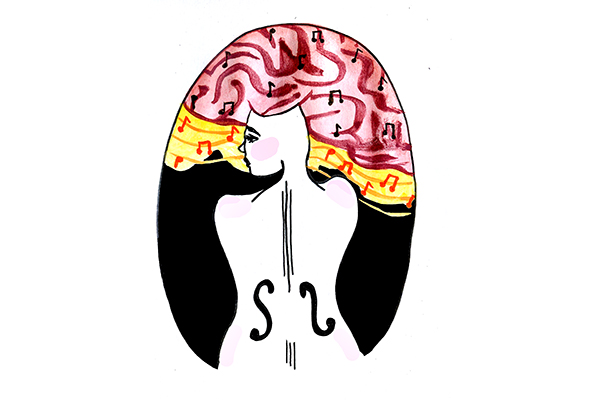Five universities in Texas have a music therapy program, but UT is not one of them.
Music therapy is the use of music interventions to achieve therapeutic outcomes, such as managing anxiety, relieving pain, enhancing memory, helping speech and aiding physical rehabilitation, according to
musictherapy.org.
Mary Ellen Poole, director of the Butler School of Music, said the field is rapidly changing with more focus on neuroscience than in previous years, so there is a shortage of people with a Ph.D. in music therapy.
“My colleagues around the country with (music therapy) programs who’ve been doing faculty searches complain about the small pool of candidates they’re able to attract,” Poole said in an email.
Poole said music therapy would be a good fit at UT, especially with the new Dell Medical School and UT’s “great depth” in neuroscience.
“It would take a lot of cross-departmental collaboration and institutional investment (not only in faculty lines, but in facilities), but it would be a great service to society and I’d personally love to be involved in developing music therapy at Texas someday,” Poole said.
The state of Texas does not currently give out music therapy licenses. To become a music therapist, a student must get a degree in an approved program and receive a certificate from The Certification Board for Music Therapists, the only national organization that certifies music therapists.
Janice Lindstrom, lecturer in music therapy at Southern Methodist University — one of the five schools in Texas with the program — said students take a sequence of classes in music, such as music theory and ensemble. Next, they take music therapy courses while learning guitar. Later in the sequence, they do field work and research.
“The primary tool that we use is music, so we have to know our tool really well, really deeply,” Lindstrom said. “That’s why we have so much of the music requirement, so that we can understand how it affects the human brain.”
If a student wants to pursue music therapy but is at a university that does not currently have a program, they should get a music degree and then find a university that has a master’s equivalency degree in music therapy, Lindstrom said. She said becoming a music therapist would be more difficult for someone who majors in psychology because understanding music theory and ensemble is really important.
Psychology sophomore Destiny Gonzales hopes to finish her degree while learning how to play guitar and piano. Then, she said she wants to go to Texas Woman’s University or Colorado State University for music therapy.
“I remember looking into it … like ‘Oh, does UT have a music therapy program?’” Gonzales said. “You’d think they would because the music programs here are amazing, it’s a very liberal school and alternative medicine is really popular in Austin.”
Austin music therapist Andrea Cortez said music therapy programs in colleges are important because the field is growing and more students are looking for places to study it.
“If we have programs in universities like (UT), which is a wonderful school, we could establish more research in areas that we need,” Cortez said. “I have seen myself how music therapy can help my clients and I think that it’s important to have the research studies behind that … so music therapy can be pushed more into mainstream medicine.”





















